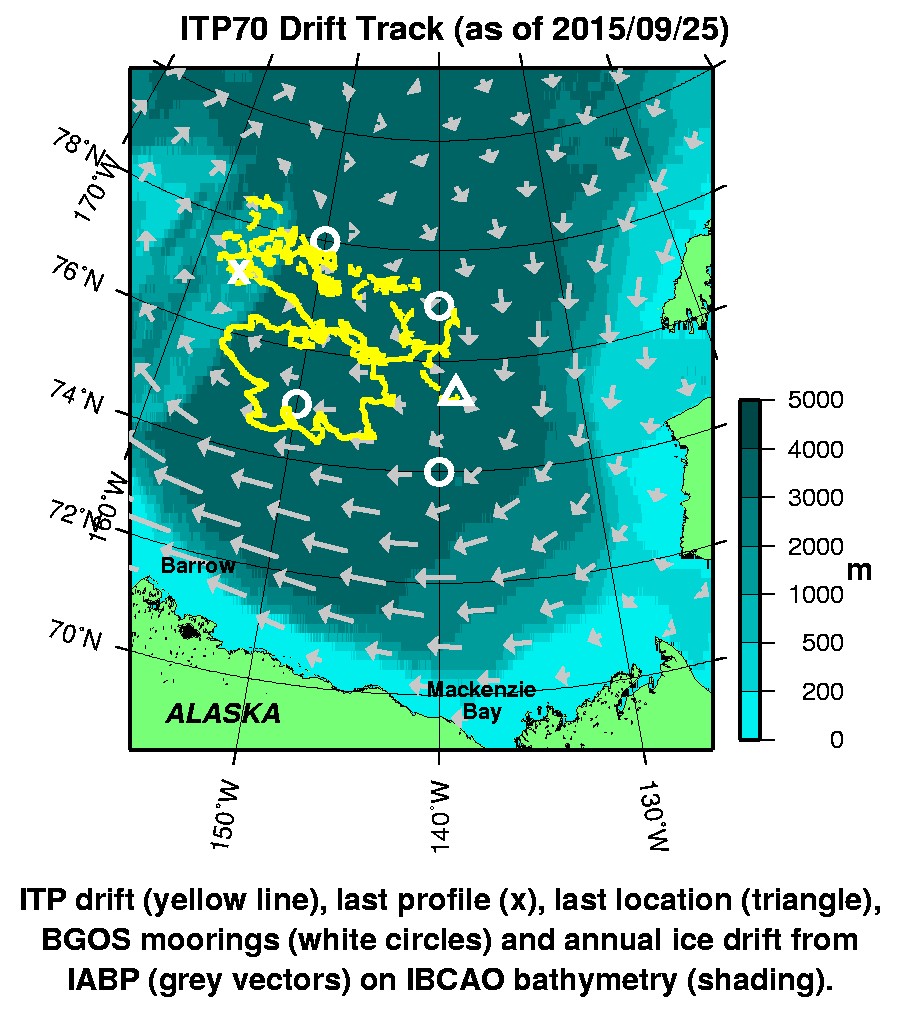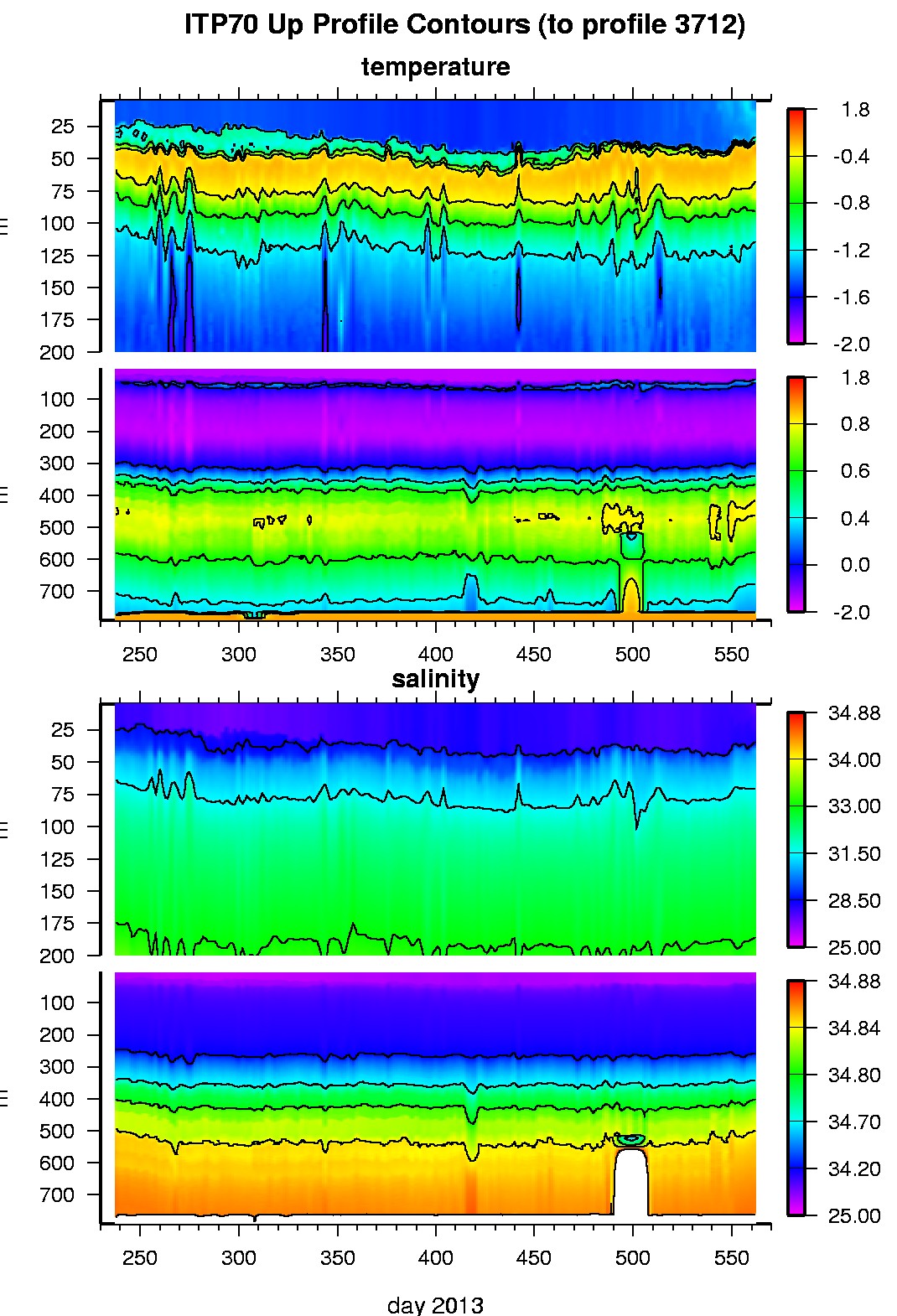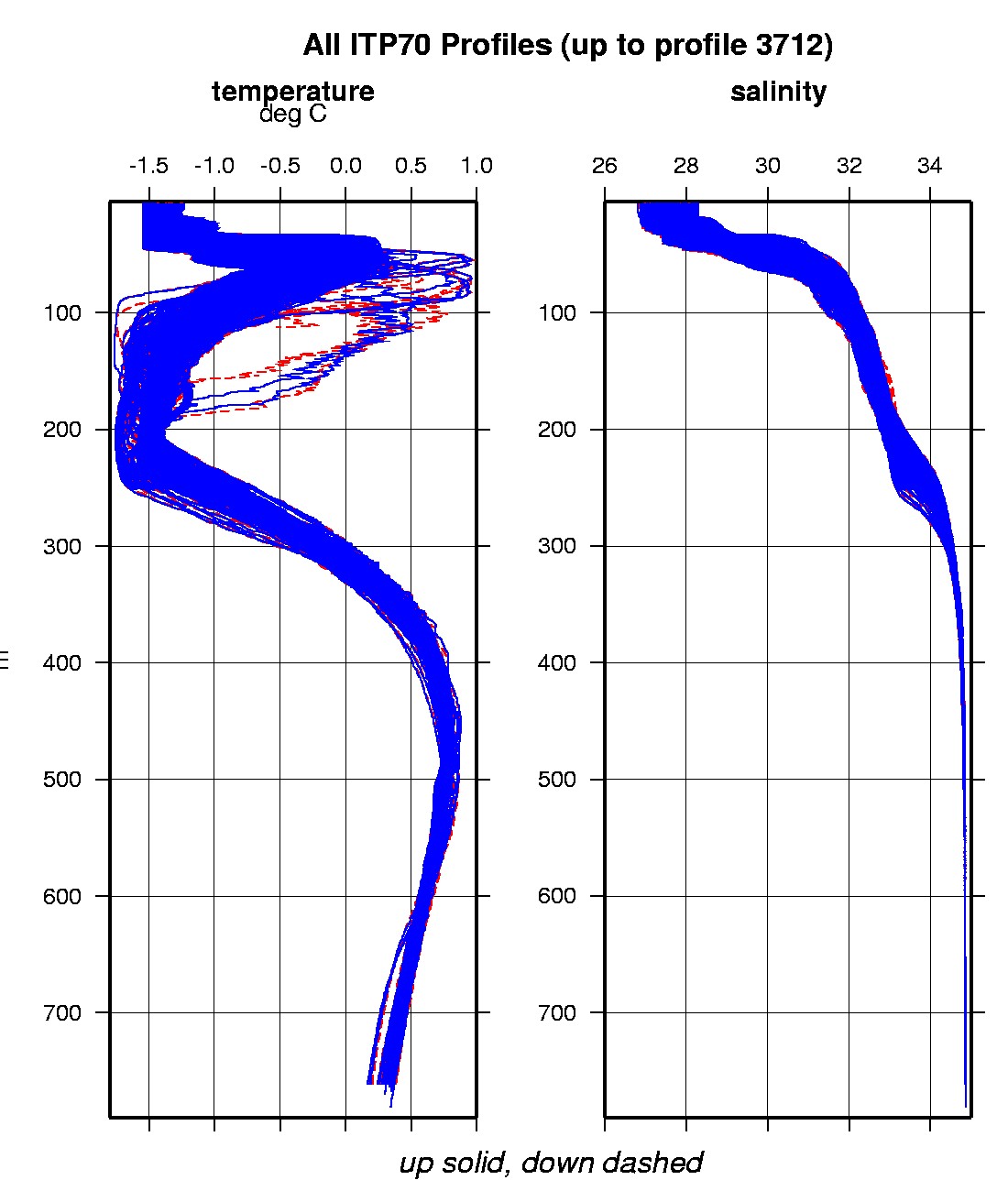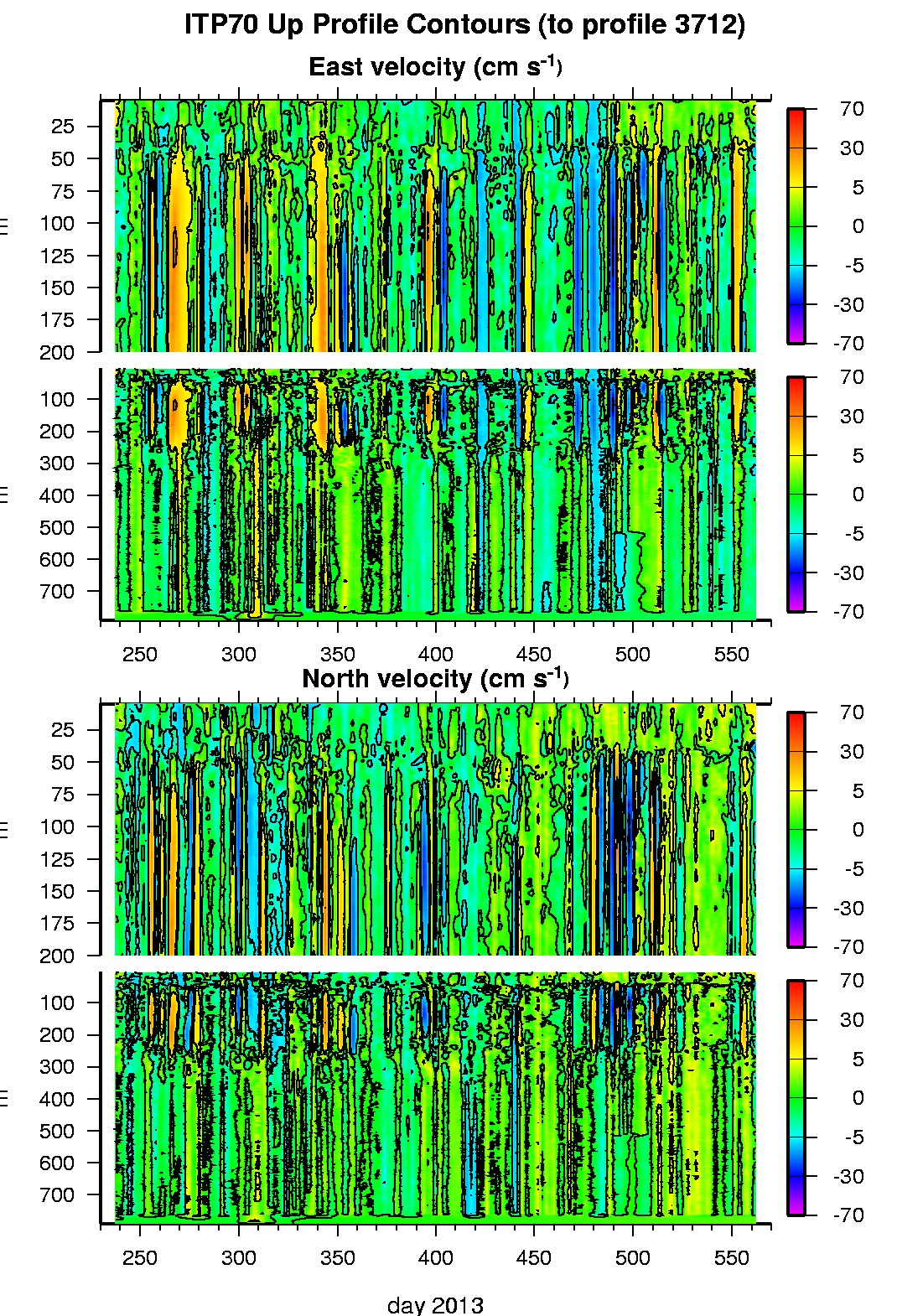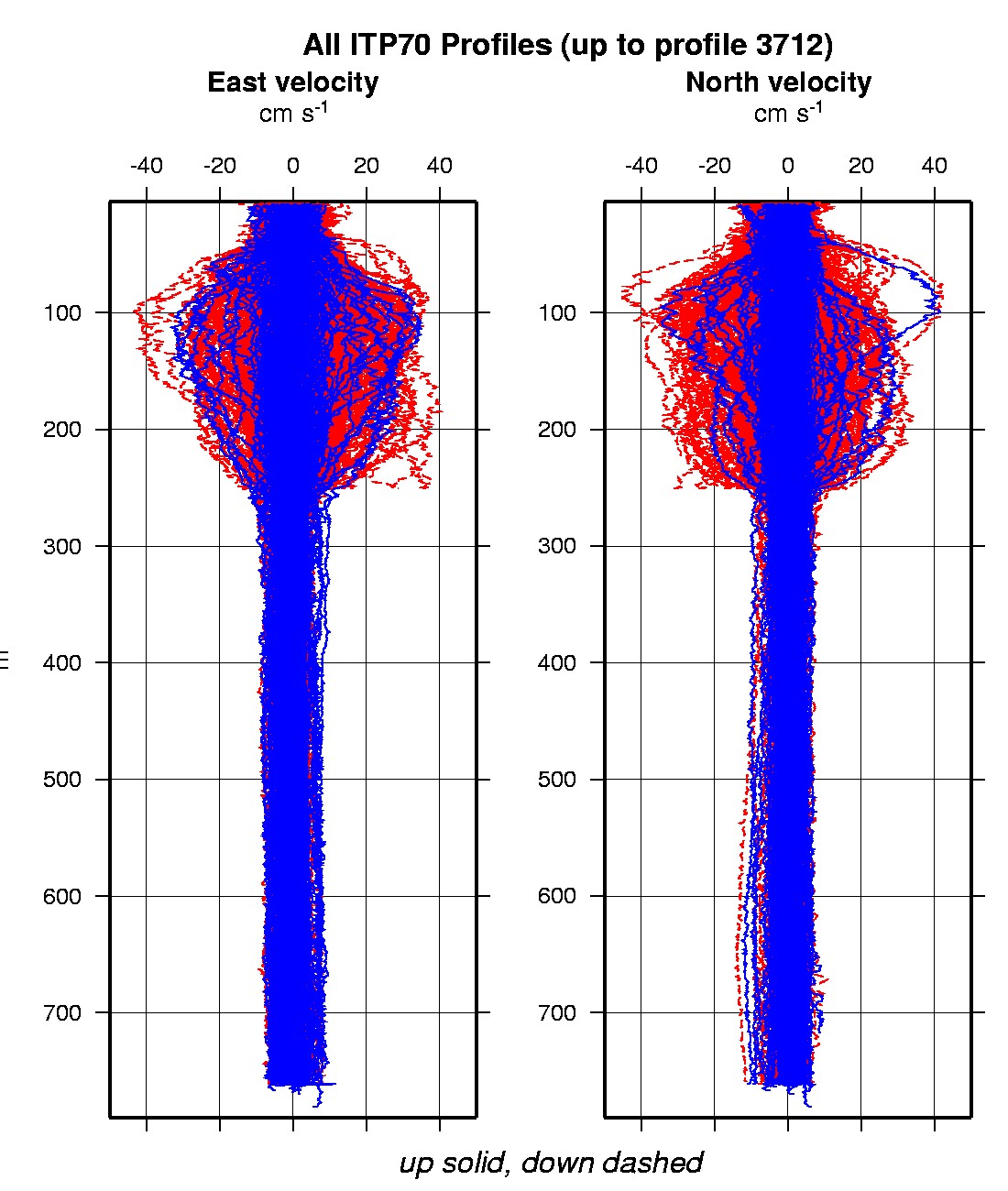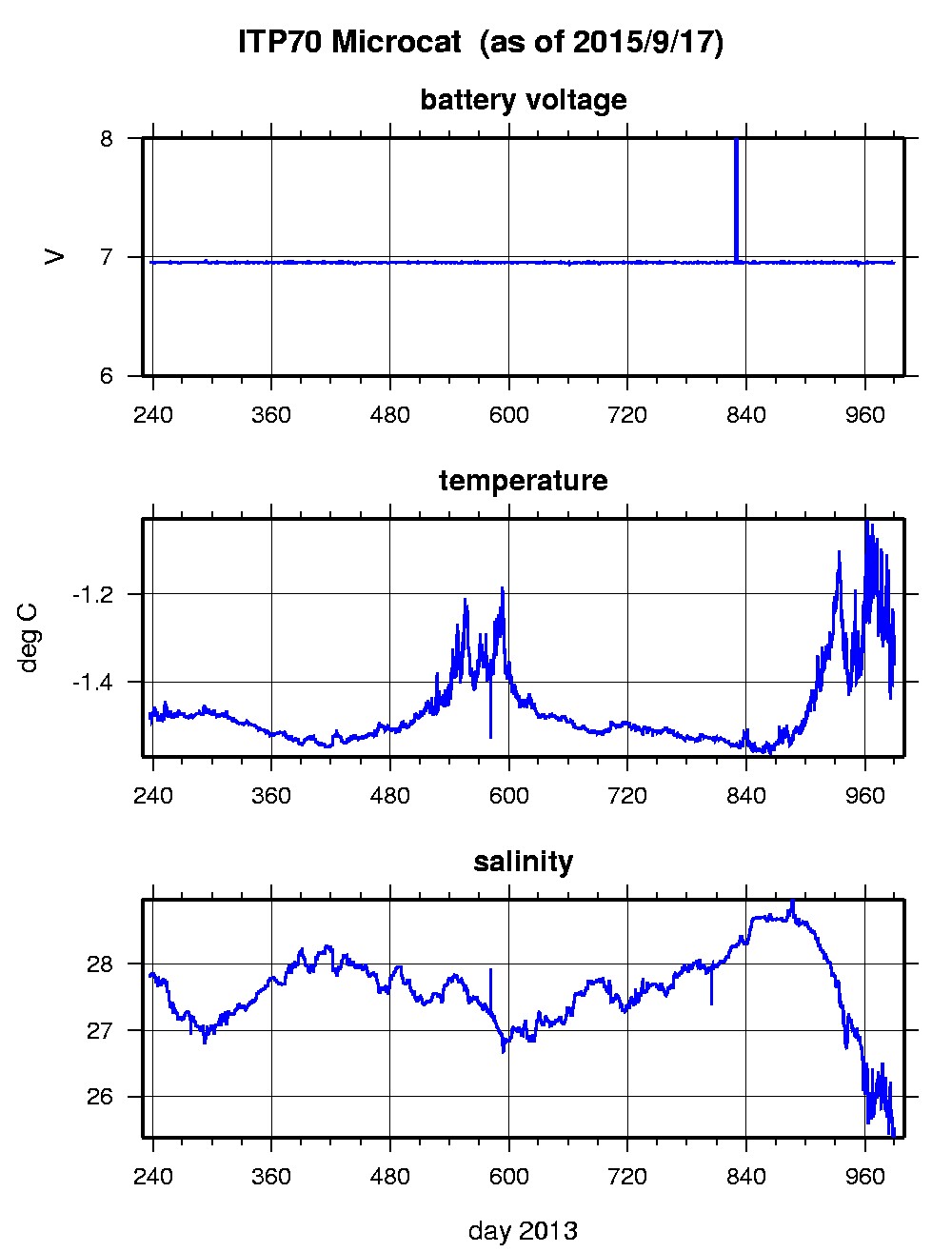ITP 70 Data Description
The ITP profiler was configured with a complicated pattern profiling schedule with stationary (at 7 m), shallow (7-250 m) and deep (7-750 m) profiles to maximize the velocity observations. In the surface package, the GPS receiver was powered hourly to obtain locations hourly, and buoy temperature and battery voltage status were recorded.
The ITP drifted westward after being deployed, completed a large clockwise loop then drifted over the Northwind Ridge. After the profiler stopped, the unit eventually drifted back east and south where the complete system was recovered.
The plots to the right are of the final, calibrated, edited data (as opposed to the raw data presented on the active instrument pages).
See the Data Products tab to the left for descriptions of the three levels (I, II, III) of data processing and to access all data.
ITP 70 data can also be found at the links below:
Level II hourly buoy location data in ASCII format: itp70rawlocs.dat
Level III 1-Hz processed profile and microcat data in MATLAB format: itp70cormat.tar.Z and itp70cormat.zip
Level III 1-db bin-averaged processed profile and microcat data in MATLAB format: itp70final.mat
Level III 1-db bin-averaged processed profile and microcat data in ASCII format: itp70final.tar.Z and itp70final.zip
